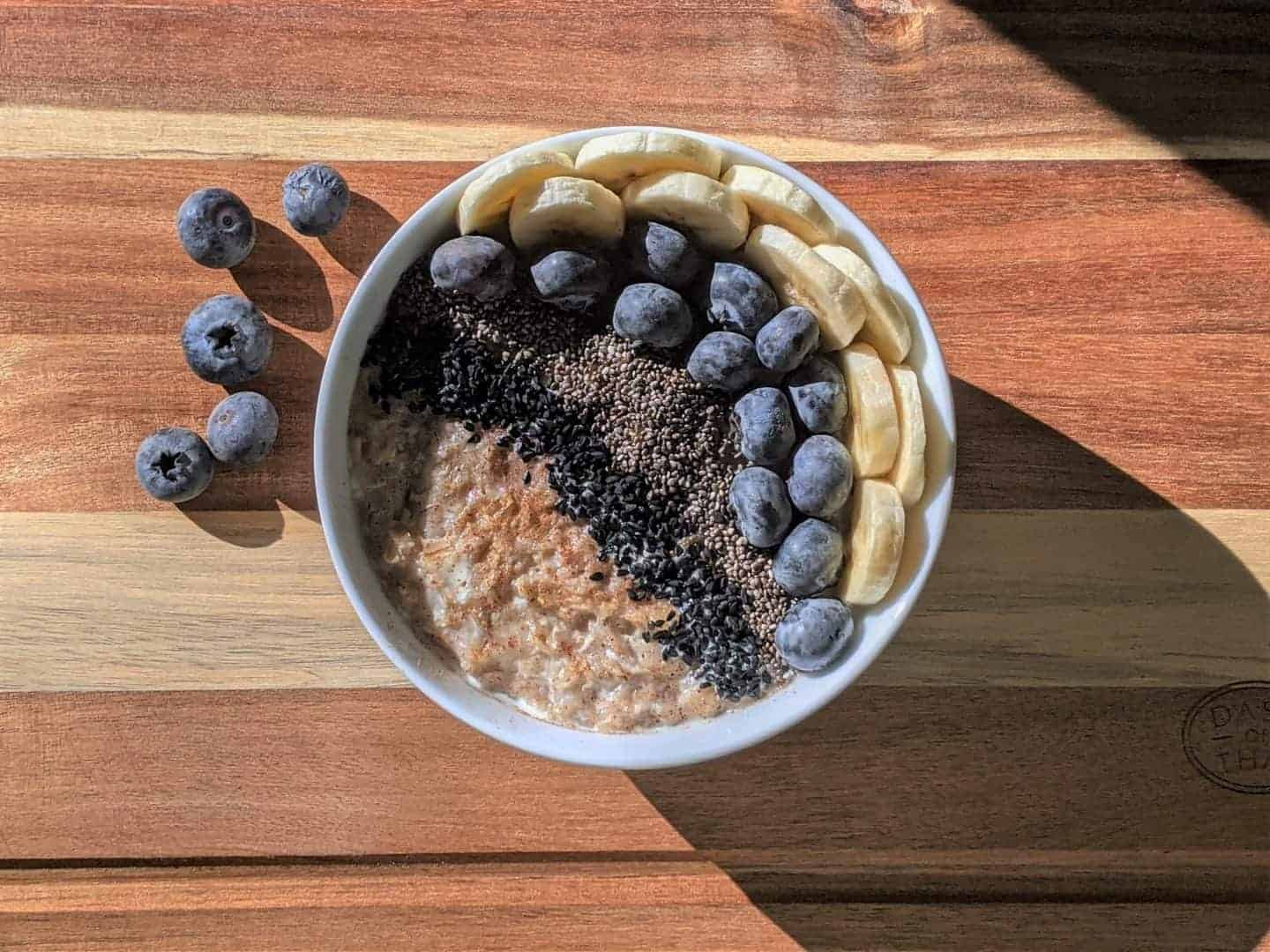Geschatte leestijd: 3 minutenWhen I visited the Mexican state of Chiapas four years ago, I was not yet aware of the existence of chia seeds and did not know that this state was named after the seed. By now, we have all become completely crazy about chia seeds.
It is a superfood. And there we go again: as soon as something is called a superfood, you can question whether it is really that super.
What are chia seeds?
The state of Chiapas derives its name from chia, which means greasy. This etymological reference is for many a direct reason to make the seed extra important to us and to ancient tribes in Mexico, but naming a place after a regional product does not directly mean that the product is extremely healthy. They would agree with me in Salzburg.
Who or what made chia seeds so popular in a short time is unclear to me, but it is beyond doubt that it is popular. It is even so that the extremely high demand for chia seeds worldwide drives up the price, making chia seeds about seven times as expensive as flaxseed, which is nutritionally equivalent.
Are chia seeds healthy
But is chia really that healthy? Absolutely, but let’s not exaggerate. The health claims of chia seeds are clear: lots of omega-3, calcium, fibers, and protein. If you compare the seed with other products and take the standard measure for such comparisons, 100 grams, then the differences are significant. However, the problem is that there is no one in the world who consumes 100 grams of chia seeds every day. 10 grams is a more common weight, which immediately nuances the claims regarding nutrients. Considering the price of the seed, you might wonder how super this superfood is.
Versatile
The downside is that chia seeds are particularly versatile and therefore can be used in many dishes. Superfoodies use it in pudding, as an egg substitute, in crackers, and other baked goods. The seed is gluten-free, and few are allergic to its components. Therefore, it is also a commonly used addition to smoothies. To increase its value even more.
To use or not to use?
The use of chia seeds depends on many factors. You can add it to your smoothie if you think you’re missing important nutrients, but then you might wonder if you can get those nutrients in another way. For example, by eating walnuts or adding ground flaxseed.
If you are a culinary prince or princess, then chia seeds are for you. The versatile nature of chia seeds (you can even use it as an egg substitute) gives you numerous possibilities to use it in many healthy recipes.
Perhaps that is why it is so popular: health-conscious people appreciate the seed for its versatility and continue to praise it for its nutritional value.
Speaking of prices: if you’re considering your wallet, chia seeds are a risky choice for you. The seed is extremely more expensive compared to equivalent products (such as flaxseed).
Conclusion
The most important thing about chia seeds, and all superfoods, is that it is not a shortcut to health. If you use superfoods because you’re missing something in your diet, you should worry about your overall diet instead of taking superfoods. If you use superfoods because you want to further improve your already healthy diet, then that’s fine, but never forget that adding something to your diet is not the solution for obesity. If the latter is not your problem, then chia seeds are a healthy choice in your diet. Because it is versatile and nutrient-rich. But expensive.
And it stays between your teeth. Kind of like sesame seeds squared.
References
- nl.wikipedia.org/wiki/Chia_(plant)
- iamafoodie.nl/superfoods-deel-2-chia-zaden
- en.wikipedia.org/wiki/Salvia_hispanica

